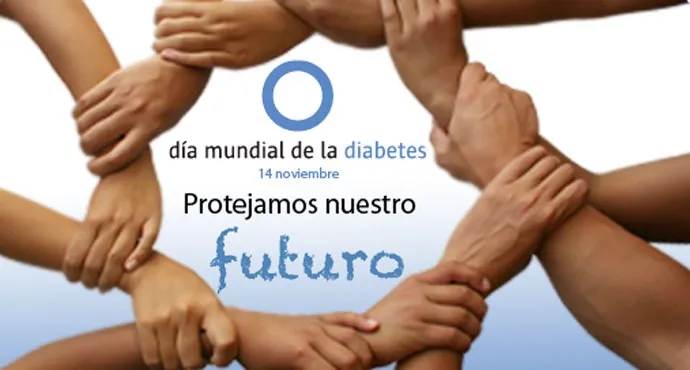People can be tested with professionals whether or not they have a complicated disease and continue with care and prevention.They will take place from November 13 to 27, mainly in the local hospitals of the three Fueguinas cities.
The Provincial Ministry of Health announced various activities for World Diabetes Day in Tierra del Fuego, which will include a laboratory detection campaign, open talks and walks.
The activities will take place from November 13 to 27, within the framework of this important and vital awareness campaign, which is commemorated every November 14, worldwide.
The objective, in addition to raising awareness among the population about this disease, is that people know and know their risk factors, in addition to emphasizing healthy life habits, which can prevent their appearance.
In the laboratories of the regional hospitals of Ushuaia and Rio Grande, a "detection campaign" will be carried out, which will consist of a blood glucose exam - through blood extraction - and will not require a medical order, and must attend on an empty stomach.In the HRU it will be from Monday 13 to Friday 17, from 6:30 to 9:30.Meanwhile, in the HRRG you will have to appear from Tuesday 14 to Thursday 16, starting at 7:30.
For its part, the Interdisciplinary Children's Diabetes Team of the Ushuaia Hospital, summoned a walk on Tuesday 14 at 10, in the roundabout of the Paseo de las Rosas.In addition, talks by professionals on November 16, 23 and 27 will be held at the HRU library, focused on "what are the complications of diabetes", "how can I take care of my feet if I have diabetes" and "Workshop onNutrition in diabetes ", among other topics.
In Tolhuin, Dr. Andrea Carreño will provide a talk to the educational community at Census No. 2, Tuesday 14 at 20.30.In Rio Grande, talks will be made at the Primary Health Care Centers, day and time to be confirmed.
"Diabetes is a disease that has been growing in recent years. This goes hand in hand with overweight and obesity," said Dr. Patricia Bocco, adding that there are two large classes of diabetes: type 1 and type 2.
"Type 1 diabetes is youthful infant, while type 2 is more common in adult, especially in those over 45, and is more related to obesity and overweight," explained the professional, in addition to mentioningthat the possibilities of possessing the disease "increase if you have a first -degree relative to suffer or have suffered."
"Within preventive measures the walk is always recommended. If we find it difficultAnd he concluded that the latter "has an impact on the calories that one is spending and improving the metabolism of the body."


